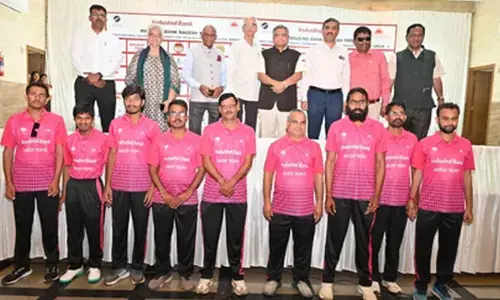Preparing students for digital age

Building digital skills in students is an ongoing process that requires a comprehensive approach involving curriculum integration, hands-on learning, educator training, collaborative projects, digital citizenship education, utilization of online resources, and industry connections. By adopting these strategies, educational institutions can equip students with the necessary digital competencies to succeed in the digital era, preparing them not only for future careers but also for informed and engaged participation in a technology-driven world
In today’s fast-paced and technology-driven world, building digital skills among students is not just an educational imperative but a critical necessity for their future success. The integration of digital skills into the education system equips students with the competencies required to navigate and thrive in an increasingly digital society and economy. Here are several key strategies for building digital skills among students, ensuring they are prepared for the challenges and opportunities of the digital age.
Integrating digital literacy in curriculum
The foundation of building digital skills begins with integrating digital literacy into the curriculum. This involves teaching students how to use technology effectively and responsibly. Basic digital literacy includes skills like word processing, using spreadsheets, and navigating the internet. More advanced skills encompass coding, digital content creation, and understanding digital security. Embedding these skills in subjects across the curriculum ensures that students are not only consumers of technology but also understand its underlying principles and applications.
Hands-on learning and practical experience
Hands-on learning is essential for developing digital skills. Schools should provide opportunities for students to engage in practical activities, such as coding projects, digital storytelling, and multimedia presentations. Makerspaces and computer labs equipped with modern technology can serve as hubs for students to experiment, create, and innovate. Projects that require students to solve real-world problems using digital tools foster critical thinking and problem-solving skills.
Professional development for educators
Educators play a pivotal role in building students’ digital skills. It is crucial that teachers themselves are proficient in digital technologies and are comfortable integrating them into their teaching practices. Professional development programs focused on digital literacy, instructional technology, and innovative teaching methods can empower educators.
When teachers are confident and competent in using digital tools, they can more effectively guide and inspire their students.
Encouraging collaborative learning
Digital skills are often best developed through collaborative learning environments. Encouraging students to work together on digital projects enhances their communication, teamwork, and digital collaboration skills. Platforms like Google Workspace, Microsoft Teams, and other collaborative tools can facilitate group projects and peer learning. Through collaboration, students learn to navigate digital platforms, share resources, and develop solutions collectively.
Promoting digital citizenship
Understanding how to use digital tools responsibly is a crucial aspect of digital skills. Promoting digital citizenship involves educating students about online safety, privacy, and ethics. Students should be taught how to protect their personal information, recognize and avoid cyberbullying, and evaluate the credibility of online information. Schools can integrate digital citizenship lessons into their regular curriculum and create policies that promote a safe and respectful online environment.
Leveraging online resources and e-learning
The vast array of online resources and e-learning platforms available today offers tremendous opportunities for building digital skills. Educational websites, online courses, and virtual simulations provide students with additional avenues to learn and practice digital skills at their own pace. Teachers can curate a selection of high-quality digital resources that complement classroom learning and encourage students to explore these resources independently.
Connecting with industry and real-world applications
Connecting students with industry professionals and real-world applications of digital skills can provide valuable insights and motivation. Guest speakers, internships, and partnerships with tech companies can expose students to the practical uses of digital skills in various careers. Understanding the relevance and application of digital skills in the workforce can inspire students and provide a clear vision of the opportunities available to them.
Building digital skills in students is an ongoing process that requires a comprehensive approach involving curriculum integration, hands-on learning, educator training, collaborative projects, digital citizenship education, utilization of online resources, and industry connections. By adopting these strategies, educational institutions can equip students with the necessary digital competencies to succeed in the digital era, preparing them not only for future careers but also for informed and engaged participation in a technology-driven world.

















